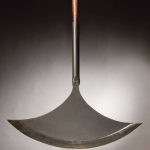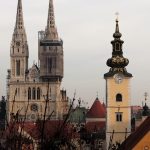As Poslovni Dnevnik/Suzana Varosanec writes, due to their strong export orientation, owing to which this industry has a significant foreign sales surplus, companies from the Croatian wood industry did well in 2020. Despite all of the pressures on needing to have the same or lower sales prices, this sector has proven rather resistant to the coronavirus crisis, and some entities are even planning to invest in expanding their production capacities.
Companies working within the Croatian wood industry are therefore preparing for more significant investments, such as those in the Galekovic group owned by entrepreneur Mladen Galekovic, whose main foreign market continues to be France, but after the first lockdown they recorded great growth in North America, especially in New York and Toronto, where they’re achieving significantly higher prices.
According to the director of the company PPS Galekovic, Filip Galekovic, this year they’re planning significant investments in the expansion of their plant and the launch of new products, and as such they are also considering the programme of prefabricated houses.
“Our exports increased by 40% last year, while total revenues of about 16 million are only 3% lower than they were the previous year, which was otherwise the best in the history of our business. The first wave of the pandemic shook us a lot and we expected the worst, but from May and June on, everything started up again. We export about 70% of our total production, and it’s worth noting our focus on the needs of Croatian construction, which still works very well,” says Galekovic.
The latest data and a survey among wood processors conducted by the Croatian Chamber of Commerce are a mirror of last year’s record in the industry in the area of parquet. Thus, in the production of finished parquets in the first 8 months of 2020, a record volume production was achieved – amounting to 2,066,960 m2. For the second year in a row, the export of parquet at double-digit rates is growing, but while the growth in the earlier period was + 18%, in 2020 in the observed period it was 40%.
Parquet exports jumped from 26.948 million euros back in 2019 to 37.717 million euros in 2020, while on the other hand imports decreased by 14%, down to 3.67 million euros in the same period in 2020. This data is accompanied by a relatively stable situation in the Croatian wood sector. This is evidenced by the directors of Croatian wood processing companies, and based on a survey on the impact of the pandemic on their business, it has been found that most of them recorded either growth and improved liquidity or managed to maintain the same level of income (and the same number of employees), while only a minority recorded a decline.
One of the Croatian wood processing companies with the highest export growth rates of as much as 50% was recorded by the Bjelin Group – a company controlled by Swedish-Croatian entrepreneur Darko Pervan. Last year, this company produced about 950,000 m2 of finished parquet, and exported about 870,000 m2. According to the director of Bjelin, Stjepan Vojnic, the opening up of the Chinese market a year earlier, where they saw impressive 100% growth, helped them in that.
“The markets of Scandinavia and Benelux, the two traditional markets of the Bjelin Group, have also grown, but the Chinese market has made the biggest difference. We have very high expectations for 2021 as well,” says Vojinic, noting that last year they hired about 60 new employees and are currently close to 900 workers, and they plan to increase that number of new employees this year as well.
As far as export progress is concerned, the key formula by which it has been achieved is market substitution. While the company Pan Parket, according to the sole founder and CEO Danijel Smiljanic, has replaced the Chinese market with that of Canada, and their exports and total revenue growth stands at around 10 percent, Drvoproizvod saw a drop in demand in April and May in the French and Italian markets and increased sales on the German market. According to the director of Drvoproizvod, Igor Josip Lescic, the Croatian market has also proved stable due to the large number of facilities that are in their final stages of construction and mean big jobs for floor and parquet manufacturers.
Lescic generally sees an opportunity for further growth in the reconstruction of buildings destroyed by the recent Petrinja earthquake. It will also be an opportunity for DI Spacva, which (in)directly exports more than 90% of its production. Last year, it had a 7% drop in sales revenue (down to 226 million kuna), while exports of finished parquets and rustic floors increased. This large employer with 850 workers continues the trends seen last year, according to the President of the Management Board of Spacva, Josip Faletar, with the belief that the vaccine will play a major role in normalising business flows and gaining even more new business opportunities.
For the latest travel info, bookmark our main travel info article, which is updated daily.
Read the Croatian Travel Update in your language – now available in 24 languages.
Join the Total Croatia Travel INFO Viber community.











